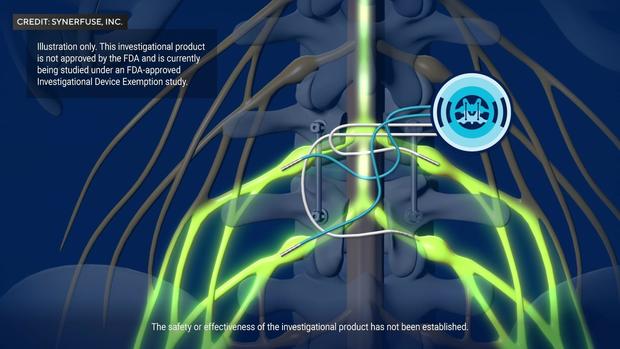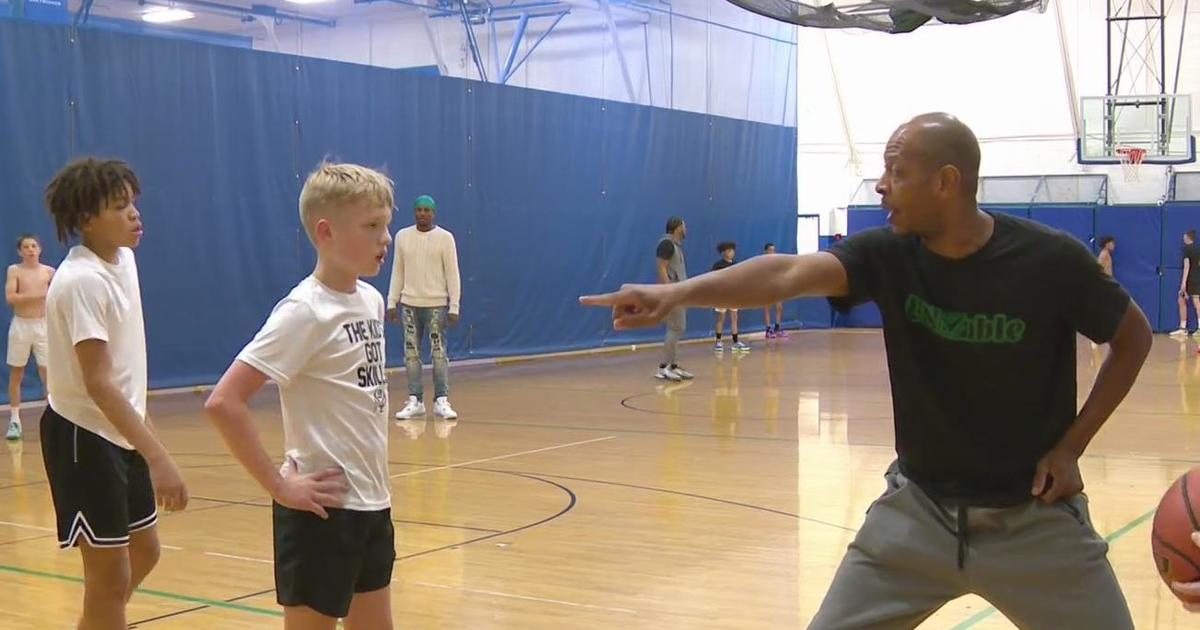New procedure in Minnesota treating chronic pain without opioids
MINNEAPOLIS – A "first-of-its-kind" study is giving a dozen Minnesotans relief from debilitating leg and back pain.
Surgeons with M Health Fairview are testing an innovative new procedure, combining two concepts for the very first time as they aim to improve long-term pain relief.
In an instant, Dawn Rootes-Husted became one of the more than 51 million Americans suffering from chronic pain.
"Went to go grab a gallon of milk out of the backseat of the car and was not able to stand back up again," Rootes-Husted said.
The pain would only get worse with time.
"The pain in the back was there and it's stiff and it's sore and it crunches, but the pain would shoot down my legs," she said.
It's what caused the 53-year-old to leave her job as a gas station manager, where she was on her feet for more than 10 hours a day.
MORE NEWS: Where to view fireworks in Minnesota in 2023
"As soon as I got home, I didn't do my yard work, I didn't do my flowers. I just wanted to be sitting down with my legs up and just not moving," she said.
Rootes-Husted tried and explored many back and leg pain remedies before turning to microscopic spine surgery. Thirteen months later, her pain returned.
"When a nerve has been impinged and sending pain signals for that many years, it's a sign that probably there's some scar tissue built up in the nerve," said neurosurgeon Dr. Rohan Lall. "And even when you free it with sort of classic surgery, the nerve isn't sort of gonna behave perfectly afterward."
Dr. Lall suggested Rootes-Husted take part in a clinical trial at M Health Fairview of the world's first double infusion implant, a procedure that does not require any narcotic pain management.
"Unfortunately I know a lot of people that get hooked on that stuff and that was not a route I wanted to go to," Rootes-Husted said.
She opted for the new integrated solution developed by Minnesota-based Synerfuse and the University of Minnesota.
"What we're doing is both fixing this instability in the spine, freeing and decompressing the nerves, and then placing electrical leads onto the nerves which send a subtle electrical signal to limit the nerve pain and back pain the patients feel even after a successful surgery," Lall said.
Over a year later, Rootes-Husted describes the procedure as a "game changer." Now if she has pain, she can adjust the stimulation of her neuromodulation device using her cellphone.
"As I tell my family and friends, don't mess with my buttons because I'm always on [laughs]!" she said.
She's now able to go on long walks again, something that would have looked different a year ago.
"I would not be standing upright like this. I would be limping and hunched," she said.
More recently, she's gotten back to a favorite summer past-time that the pain once made impossible.
MORE NEWS: 1 arrested, 1 critically injured following road rage incident at Hudson boat launch
"I love riding my motorcycle [laughs], and that is something that I've gotten back into again," she said.
The early data shows the new Synerfuse procedure is safe and effective.
Once the initial proof of concept evaluating the safety and feasibility of the procedure is complete, it will be offered to other patients at interested surgical centers around the country.




